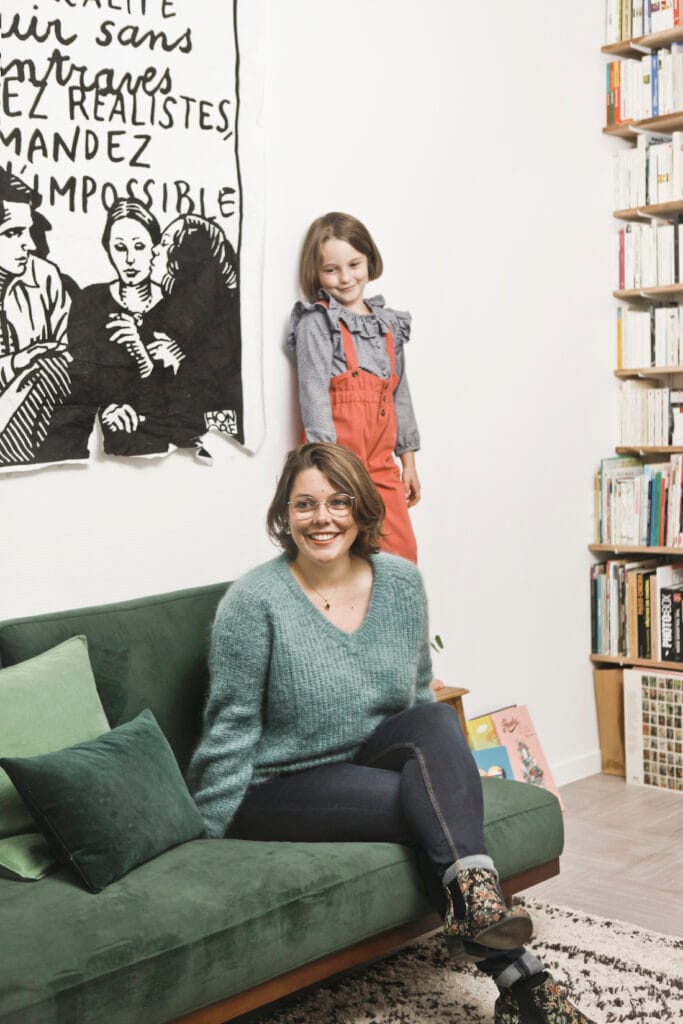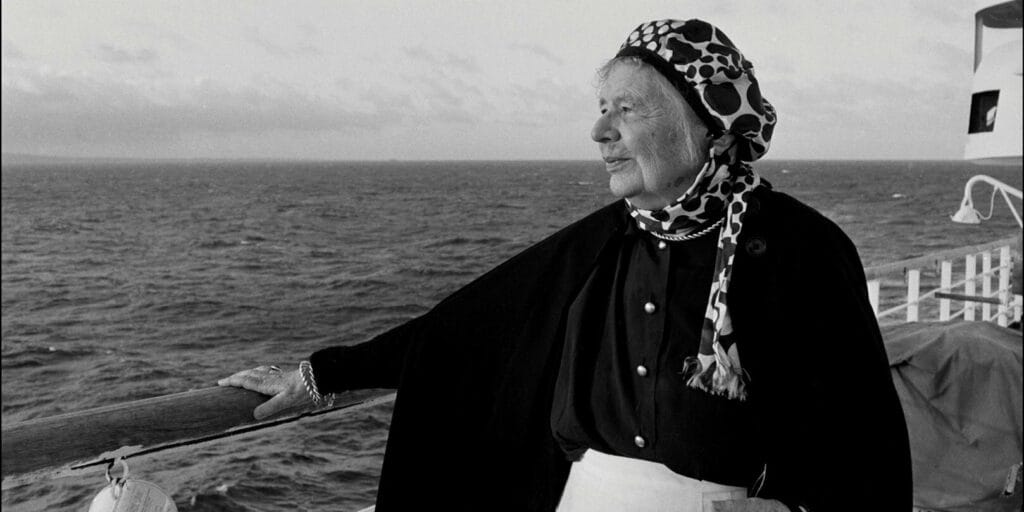Ça raconte Sarah by Pauline Delabroy-Allard is a mesmerizing debut that entwines the reader in the feverish grasp of an all-consuming love, imbued with the intensity of poetry and the raw ache of classical tragedy. The novel begins with a scene of quiet desolation: a prologue wrapped in silence, where one woman is sprawled out, indistinct, sick or dying, and the narrator hovers beside her, paralyzed by grief. From this fraught beginning, the story pulsates forward, alive with the tension of withheld identities and unanswered questions, drawing us into a tale that thrums with longing, passion, and loss.

The novel captures a young, fragile narrator, solitary with a child and locked in a relationship of stagnant companionship, who is abruptly transformed by an encounter with the fiery and larger-than-life Sarah. Sarah is a woman of excess—a character who, with her exuberant voice, “smells of blue leather and stormy desire.” Their love affair is marked by boundless passion, rendered with such aching detail that each scene echoes with poetic intensity. It is a love that devours and disorients, transforming the narrator’s ordinary days into a burning landscape of obsession and yearning. Sarah, a traveling violinist, lives in a perpetual state of movement, fleeing stability, her life a series of airport terminals, train stations, and hurried goodbyes. Her love of life is insatiable, her energy frenetic; she is the lover who “devours,” a force as consuming as fire, as volatile as sulfur.
Delabroy-Allard’s prose is exquisitely attuned to the rhythm of this passion. There is a poetic cadence that she has honed, an almost musical movement in her writing, which crescendos in the couple’s euphoric moments and slows as the narrator spirals into the despair of separation. The setting of Trieste becomes a sanctuary and a mirror for this desolate love—a city steeped in old-world melancholy, where memories of a multicultural past converge. Here, amidst the haunting beauty of Trieste, the narrator wanders, recalling poets like Umberto Saba and feeling the pull of a place where boundaries blur, echoing her own fragmented self.

The novel’s language also surprises with its playfulness, with a word or phrase taking on layers of meaning—SPAR, the name of an Italian convenience store, becomes a cry of “Go away!” and aperto, meaning “open,” shifts to “apeurto,” suggesting an unsettling openness, a vulnerability that haunts the narrator as she surrenders herself to the depths of passion. These language games lend the story a disarming intimacy, pulling us close to the narrator’s inner life where everything, every word, becomes imbued with Sarah’s presence.
The unending tension between the elation of love and the weight of grief permeates every page, reaching a peak as Sarah’s own physical vulnerability emerges in the form of breast cancer—a cruel affliction for a woman so vivid, so overflowing with life. Music, the anchor of Sarah’s soul and the emblem of their shared love, becomes the narrator’s balm in exile, echoing the sorrow and beauty of their bond in the haunting strains of Schubert’s Death and the Maiden.

In Ça raconte Sarah, Delabroy-Allard has crafted a story that, while grounded in the visceral details of a modern affair, reverberates with the gravity of classical tragedy. Her writing reflects a careful, almost reverential craftsmanship, reminiscent of Annie Ernaux and Aragon, blending the free-spirited audacity of a debut with the weighty precision of a classic. It is a novel that carves out its own space in contemporary literature: raw, arrestingly poetic, and devastatingly alive with passion.









